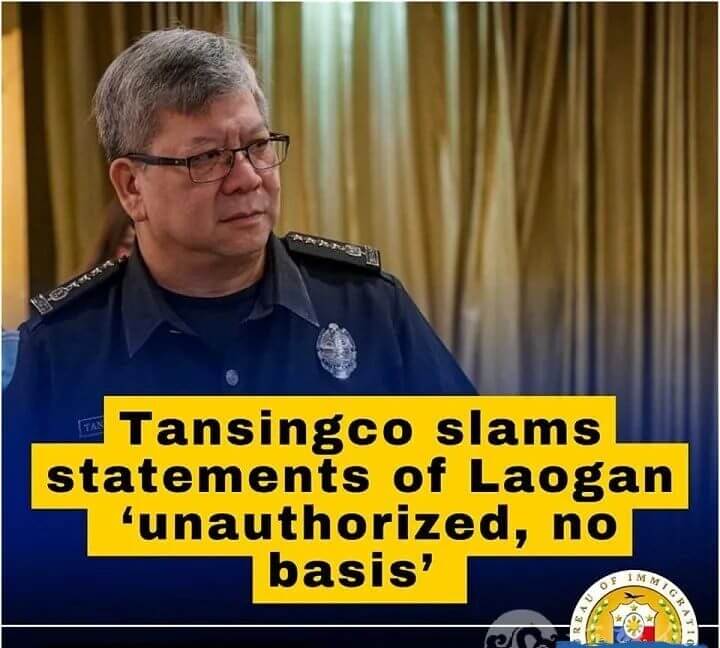What happened to the Immigration Bureau recently? Recently, there are news about amnesty everywhere. According to Philippine media reports, Liu Dianhui, deputy director of the Immigration Bureau, said that the amnesty plan is underway and the draft proposal has been submitted to the Ministry of Justice.
The report pointed out that if the amnesty for illegal aliens can be implemented smoothly, the Philippine government expects to collect 20 billion pesos from fines, because there are currently about 50 illegal immigrants in the country.
Just when everyone expressed "understanding" about the BI's "money-making" mind, on August 8, Philippine BI Director Norman Chen Xingo clarified the statement through a public statement. He also stated that such remarks were unauthorized and the data was unfounded. The Philippine BI has not submitted such a proposal. Therefore, he made it clear that the BI can only act as an executive agency and the amnesty requires a new law passed by Congress to be implemented. This clarification makes people more clear about the BI's actions and also shows the legal and procedural obstacles that the BI faces in moving forward with these plans.
Regarding the controversy over whether to earn Philippine nationality, people who have money but do not earn it can be regarded as "Filipino" gentlemen with noble moral character.The Immigration Bureau denied claims of a $20 billion fine against wealthy Chinese businessmen.
The following are several possible modifications: 1. "Such remarks are too careless and dangerous. Information we have received previously shows that there are already dishonest groups on social media selling so-called amnesty opportunities. Therefore, We reiterate that this situation does not exist." 2. "Such remarks are extremely irresponsible and dangerous. The information we have received previously indicates that there are unscrupulous groups spreading this false amnesty news. Therefore, we solemnly declare , this kind of thing did not happen at all." 3. "Such remarks are too negligent and quite dangerous. We have received some information before, indicating that there are some illegal groups on social media selling so-called amnesty certificates. Therefore, we reiterate that such a certificate never occurred."
In that case, here's what's on the table.
What the deputy general manager said is just a daily operation. There are so many foreigners residing illegally in the Philippines that the number of 50 is considered conservative. Before the epidemic, there were at least 20 to XNUMX people.At that time, intermediary advertisements for "customs protection, amnesty and whitewashing" could be seen everywhere in almost Chinese friends circles (still exist today), which proves the specialness.However, it should be pointed out that the existence of these intermediary advertisements does not necessarily mean that these foreigners are allowed.In the Philippines, foreigners need to comply with local immigration laws and regulations or risk being fined or deported.In addition, during the epidemic, the Philippine government took a series of measures to control the entry of foreigners, including travel restrictions and quarantine measures.Although these measures are intended to protect public health and safety in the Philippines, they also have an impact on the lives and operations of foreigners.However, these impacts cannot negate the status and contributions of foreigners in the Philippines.Since the XNUMXth century, many foreigners have come to the Philippines, bringing their culture, skills and capital with them and making important contributions to the development of the Philippines.These foreigners have also contributed to the diversity and inclusion of the Philippines, making the Philippines a more open and inclusive society.
Pardons have long been one of the immigration agency's main sources of revenue.Otherwise, the deputy director would not be able to easily disclose the 20 billion yuan fine figure.
Where did these illegal aliens come from? In fact, they were all released through the Immigration Bureau.These people had expired tourist visas and became "black" in the local area. They fantasized about getting rich and spending money to clear their names. However, amnesty visas are actually one of the best ways to clear their identities and stay in the Philippines. .Although the threshold is high, the benefits it brings are very many, so it is very popular.
Why does the director of the Immigration Bureau deny it? Obviously, he knows that there is corruption in the Immigration Bureau, and has already formed a cooperative industrial chain with the so-called intermediaries selling amnesty quotas, which is just like the "Toffee Project" and cannot be investigated.These intermediaries form a complete industrial chain by providing benefits to officials to obtain amnesty quotas, making this problem more serious.In addition, the increasingly sensitive issue of gambling crimes also makes it more difficult to pass the amnesty bill.Due to the seriousness of the gambling crime problem, the authorities are likely to face significant pressure from the public and media, which may adversely affect the passage of the amnesty bill.Therefore, the Director of the Immigration Bureau chose to deny that there is corruption and intermediary problems in the Immigration Bureau, and that the passage of the amnesty bill has become more difficult.While this approach may temporarily solve the problem, it won't solve the underlying problem.If these problems are not completely resolved, the passage of the amnesty bill will become more difficult and will have a greater negative impact on society.
The amnesty system is a highly controversial topic, but in fact, in addition to those who engage in local gambling fraud, there are also many Chinese from all walks of life who have struggled in the Philippines for many years and need amnesty status.These people include Chinese, Chinese businessmen, overseas students, etc. who have lived in the country for a long time.In the past, Chinese community leaders have called on the Immigration Bureau to grant amnesty to these people, believing that they are not directly related to criminal activities and should be treated fairly.The Immigration Bureau should adopt a more flexible attitude when processing amnesty applications. Strict verification of identity is a must, but it should not be beaten to death with a stick.If necessary, the Immigration Bureau may consider amnesty for those Chinese who have shown good behavior, obeyed the law, and contributed to the local economy.However, the current relationship between the Philippines and China is becoming increasingly severe, and the relevant rights and interests of overseas Chinese in the local area are also facing a certain risk of being weakened.This situation is not alarmist, because if the wind direction changes, the sickle may also harvest the Chinese first.Therefore, everyone must take precautions and go through formal procedures in advance to protect their rights and interests.Only in this way can we better integrate into the local society and play a greater role in this new era.









